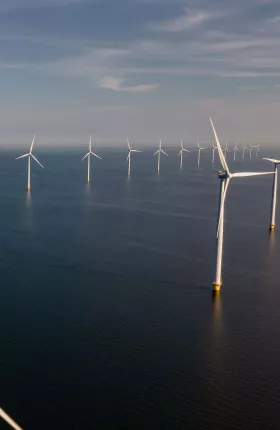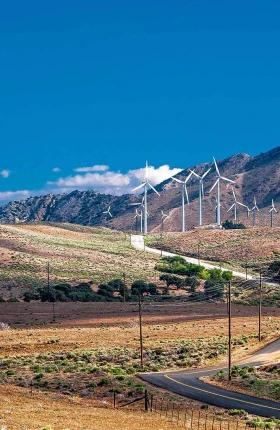For Europe to realize this goal, four technologies will require policy support and investment.
The European Union’s plan to become independent from Russian fossil fuels by 2027—announced in response to Russia’s invasion of Ukraine—is a promising step toward achieving energy security and sustainability in the bloc.
The REPowerEU Plan highlights major ambitions among European policymakers: saving energy, diversifying gas supplies, and reducing Europe’s dependence on fossil fuels from Russia as soon as possible. It will be developed in greater detail and implemented later this year.
However, political leadership and coordination are needed now to deliver on these ambitions and to make REPowerEU a truly transformative plan. Furthermore, without additional emerging and enabling technologies , it will not be possible for Europe to reach the volume of renewables proposed by REPowerEU.
Four Solutions for an Energy-Secure Europe
In a BCG report commissioned by Breakthrough Energy, “Boosting REPowerEU,” we showcase four technologies that we believe are key to accelerating the path toward European energy security and sustainability. Currently, they receive insufficient funding and attention. (See Exhibit 1.)
While many solutions will play an important role, these four technologies are among the most promising in the short term because they are relatively mature, have high potential for ensuring energy security and carbon abatement, and are effective on a large and small scale. They are electrical grid infrastructure, long-duration energy storage, clean hydrogen, and sustainable aviation fuel . The first three are important enablers for the clean energy measures already contained in REPowerEU, while the fourth is a key emerging technology.
We estimate that these four solutions can lessen the EU’s energy dependency by helping to deliver the equivalent of more than 1,400 terawatt-hours (TWh) of energy by 2030—or about 10% of the EU’s projected total primary energy consumption. This depends on cumulative investment of about €800 billion, akin to the EU's projected spending on oil and gas imports over the same period. Additional details (including differences in technological maturity, key challenges, and suggested action plans for the EU and member states) can be found in the report. Here's how our figures break down:
- Electrical Grid Infrastructure. Transmission and distribution lines will need to be upgraded to support greater renewable energy generation and smart technologies, such as smart metering. We estimate grid improvements will enable 700 TWh of renewable energy and require an investment of about €740 billion through 2030.
- Long-Duration Energy Storage. Approximately 15 gigawatts of long-duration energy storage, equivalent to some 30 TWh of stored power, will be needed to hit REPowerEU’s target: 45% of the EU’s energy must come from renewables by 2030. This will take about €17 billion in cumulative investment. It will also depend on a more coordinated EU-wide strategy that reduces costs and increases capacity.
- Clean Hydrogen. Among other steps, the EU will need to build giant electrolyzer gigafactories and free up land for renewables to support the widespread adoption of clean hydrogen (made by electrolysis or biomass gasification). By investing some €44 billion in infrastructure and the hydrogen supply chain through 2030, the EU can enable production and import about 20 million tonnes of clean hydrogen per year, equivalent to 670 TWh of power.
- Sustainable Aviation Fuel. By 2030, the EU could produce some five billion liters of fuel—equivalent to 115,000 flights or 40 TWh of power—but this will require around €5.3 billion in cumulative investment. This fuel is currently far more expensive than traditional jet fuel. However, better permitting and funding mechanisms can support investment, help tackle feedstock challenges, and bring down costs.
We believe that these four solutions should form an integral part of the strategy to carry out the REPowerEU Plan. Building and scaling these solutions will deliver more affordable, secure, and sustainable energy. Taking these steps will also spur entrepreneurship, promote industrial leadership, and attract innovative companies from outside the EU to compete in a thriving clean-technology market. By acting boldly, policymakers can position the EU for long-term security, climate , and economic success. It is an opportunity that should not be missed.













